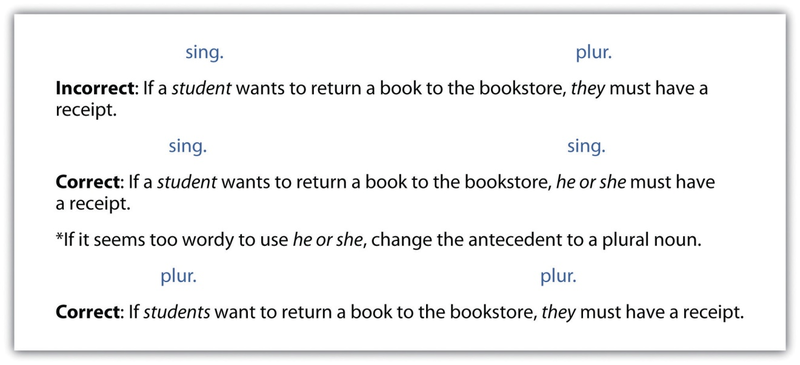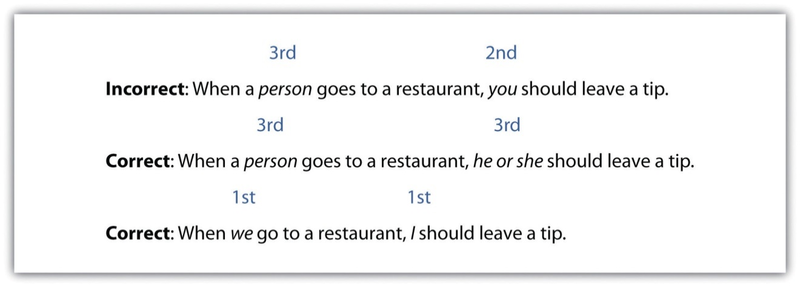A pronoun is a word that takes the place of (or refers back to) a noun or another pronoun. The word or words a pronoun refers to is called the antecedent of the pronoun.
-
Lani complained that she was exhausted.
- She refers to Lani.
- Lani is the antecedent of she.
-
Jeremy left the party early, so I did not see him until Monday at work.
- Him refers to Jeremy.
- Jeremy is the antecedent of him.
-
Crina and Rosalie have been best friends ever since they were freshman in high school.
- They refers to Crina and Rosalie.
- Crina and Rosalie is the antecedent of they.
Pronoun agreement errors occur when the pronoun and the antecedent do not match or agree with each other. There are several types of pronoun agreement.
Agreement in Number
If the pronoun takes the place of or refers to a singular noun, the pronoun must also be singular.

Agreement in Person
|
Singular Form |
Plural Form |
|
|
First Person |
I, me, my (mine) |
We, us, our (ours) |
|
Second Person |
You, you, your (yours) |
You you your (your) |
|
Third Person |
He, she, it, him, her, it, this, its |
They, them, their (theirs) |
If you use a consistent person, your reader is less likely to be confused.

- 瀏覽次數:3239






